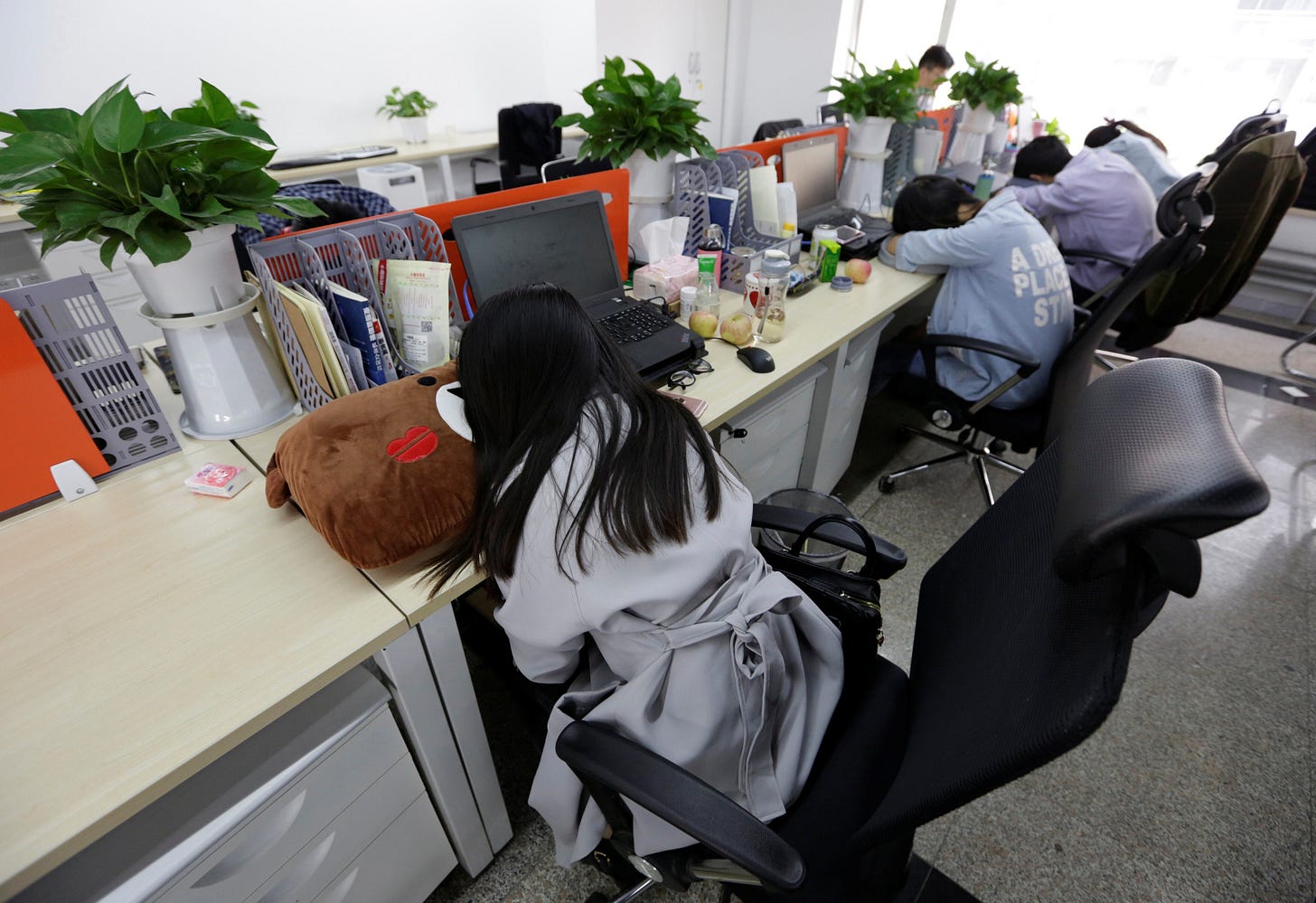Loneliness is a pervasive human experience, transcending geographical, cultural, and socioeconomic boundaries. It manifests in various forms and is influenced by numerous factors, including societal norms, technological advancements, and work culture. In the context of China's 996 work culture, characterized by long working hours (9 a.m. to 9 p.m., six days a week), loneliness takes on a unique dimension, exacerbating its effects on individuals and society as a whole.
The 996 work culture, coined from the demanding schedule of many tech companies in China, has garnered significant attention globally for its grueling nature and its impact on employees' physical and mental well-being. While proponents argue that it fosters productivity and economic growth, critics highlight its detrimental effects on work-life balance, health, and relationships. Amidst these debates lies the overlooked issue of loneliness, which often accompanies the relentless pursuit of professional success in such environments.
One of the primary contributors to loneliness within the 996 work culture is the lack of time for meaningful social connections. With employees spending the majority of their waking hours at work, they have limited opportunities to engage in social activities, spend time with family and friends, or participate in community events. This isolation can lead to feelings of alienation, disconnection, and a sense of emptiness, despite being surrounded by colleagues in the workplace.
The intense pressure to perform under stringent deadlines and high expectations can exacerbate feelings of loneliness and isolation. In an environment where long hours are glorified and work-related achievements are prioritized above personal well-being, individuals may suppress their emotional needs and neglect their social relationships in favor of professional success. This relentless pursuit of excellence often comes at the expense of meaningful human connections, further deepening the sense of loneliness and detachment.
Furthermore, the prevalence of technology and digital communication tools in the workplace exacerbates feelings of loneliness by replacing face-to-face interactions with virtual connections. While these tools facilitate remote work and collaboration, they can also contribute to feelings of isolation and disconnection, as genuine human interaction is replaced by impersonal online exchanges. The absence of authentic connections can intensify feelings of loneliness and exacerbate mental health issues among employees.
The consequences of loneliness within the 996 work culture extend beyond individual well-being and impact organizational performance and societal cohesion. Research has shown that lonely employees are less engaged, less productive, and more prone to burnout, ultimately undermining the effectiveness and sustainability of the workforce. Moreover, the erosion of social relationships and community ties can have broader implications for societal cohesion, as individuals become increasingly isolated and disconnected from one another.
Addressing the issue of loneliness within the 996 work culture requires a multifaceted approach that prioritizes employee well-being, fosters a supportive work environment, and promotes a healthy work-life balance. Employers must recognize the importance of social connections and provide opportunities for employees to build meaningful relationships both inside and outside the workplace. This may include implementing flexible work arrangements, promoting social events and team-building activities, and fostering a culture of work-life balance and self-care.
Additionally, policymakers, industry leaders, and civil society organizations must advocate for legislative reforms and corporate policies that prioritize employee well-being and limit the prevalence of exploitative work practices such as the 996 schedule. By promoting a culture of empathy, collaboration, and holistic well-being, we can mitigate the pervasive effects of loneliness within the 996 work culture and create a more sustainable and compassionate work environment for all.







I didn't know anything about the 996 work culture and now you opened my eyes ... Thank you for that...
And while the rest of the developed world is eyeing a 4-day workweek... Thanks for this eye-opener, Matt. Hope you are well! xo